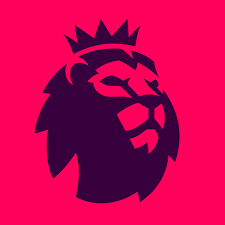How Underdog Football Clubs Build Winning Teams with Small Budgets

Strong 8k brings an ultra-HD IPTV experience to your living room and your pocket.
Discover how underdog football clubs achieve success on limited budgets through smart strategy, talent scouting, and team spirit.
How Underdogs Build Winning Teams on Small Budgets
In the modern era of football, big clubs often dominate headlines with multimillion-euro signings, record-breaking salaries, and massive commercial deals. Yet, beneath the surface, a different kind of football story is unfolding — one where underdog teams with tiny budgets consistently challenge giants and defy the odds.
These clubs don't rely on superstars or overflowing coffers. Instead, they thrive on smart recruitment, tactical ingenuity, strong culture, and an unbreakable bond with their fans. In this article, we’ll explore how these underdog football clubs build winning teams without breaking the bank — and why their stories are the soul of the beautiful game.
1. The Power of Purpose and Identity
Every successful underdog begins with a strong club identity. Without financial muscle, clubs must build a unique personality — both on and off the pitch — to attract players, fans, and staff who buy into a collective vision.
Clubs like Union Berlin, Brentford, and Bodø/Glimt have shown that having a clear purpose makes a huge difference:
Union Berlin thrives on its working-class roots and fan-first ownership.
Brentford FC has built a data-driven, forward-thinking recruitment model.
Bodø/Glimt from Norway represents tactical innovation and community strength.
Rather than chasing trends or reacting to pressure, these clubs lean into their identities, making them resilient in both good times and bad.
2. Smart Scouting and Data-Driven Recruitment
One of the biggest advantages small clubs have developed in recent years is the use of analytics in scouting. Without the budget to sign world-renowned stars, they focus on identifying undervalued players with high potential.
Take Brentford FC, for example. They famously shut down their academy to focus entirely on data-led recruitment. The result? A steady stream of talent discovered from lower leagues and under-the-radar markets.
Key scouting strategies include:
Looking at players from less-scouted leagues (e.g., Scandinavia, Eastern Europe, Africa).
Analyzing statistical profiles that match the team’s tactical system.
Signing players on short-term value with high potential resale margins.
By doing this, underdogs create sustainable success — winning games and later profiting from smart transfers.
3. Investing in the Right Coach
When you can’t afford big names on the pitch, you need brilliance on the touchline. Hiring the right manager is often the single most important decision for an underdog club.
Coaches like:
Will Still (Stade de Reims) — became the youngest head coach in Europe, transforming Reims into a competitive Ligue 1 outfit.
Thomas Frank (Brentford) — helped take a modest squad to the English Premier League.
Míchel (Girona FC) — currently guiding Girona to unprecedented La Liga success.
These managers don’t just bring tactics; they inspire belief. Underdog coaches often excel at:
Maximizing squad potential
Building a clear tactical identity
Fostering strong locker-room culture
Their ability to do more with less is what elevates their teams above expectations.
4. Emphasizing Youth Development
Underdog clubs often turn to their youth academies to develop talent, both for their own use and for future transfer profits.
Look at clubs like:
FC Nordsjælland (Denmark) — focuses heavily on academy graduates and African talents from their Right to Dream partnership.
AZ Alkmaar (Netherlands) — regularly produces players sold to top-five leagues.
Youth development offers multiple benefits:
Cost-effective squad depth
Long-term planning
Cultural continuity
Potential for massive profit
Moreover, when young players are given chances at smaller clubs, they often respond with loyalty and high performance, knowing they’re being trusted.
5. Building a Cohesive, Committed Squad
Money can buy individual brilliance, but it can’t always buy team chemistry. That’s where underdog clubs shine.
Because they can’t afford constant turnover, small-budget teams focus on:
Stability and long-term planning
Character-based recruitment
Emotional connection between players, fans, and the club
Take Luton Town, for example. Their rise from non-league football to the Premier League was built on players who gave everything for the badge, many of whom had been with the club through multiple promotions.
This loyalty and togetherness often becomes a competitive edge — the underdog’s secret weapon.
6. Tactical Flexibility and Innovation
Underdogs must be tactically smart to overcome stronger, more talented opponents. That means being:
Flexible in formation and strategy
Well-drilled defensively
Sharp on set pieces and transitions
Many small clubs focus on specific tactics that neutralize the opponent’s strengths. Whether it’s a high block, low block, counterattack, or overload in key areas, the focus is always on efficiency and surprise.
Managers like Franck Haise (RC Lens) and Arne Slot (Feyenoord) have made headlines by implementing systems that confuse and outsmart wealthier teams.
7. Fan Engagement and Club Culture
Lastly, what makes underdog clubs truly powerful is their relationship with the fans. Supporters of small clubs are often deeply loyal, passionate, and involved in club affairs.
Clubs like:
St. Pauli (Germany) — driven by activism, anti-commercialism, and community values.
Real Oviedo (Spain) — once saved by global fan investment via crowdfunding.
These fanbases help generate an electric atmosphere on matchdays and instill a sense of purpose in the players. This kind of support can't be bought — it’s earned, and it turns every home game into a fortress.
Why It Matters: Football Is for Everyone
The success of underdog teams on small budgets is a powerful reminder that football is not just about money. It's about smart planning, community, and passion. While elite clubs often define football’s future, underdog clubs preserve its soul.
When you follow a club like Girona, Union Berlin, or Bodø/Glimt, you're not just watching football — you’re witnessing a movement. A rebellion against the notion that only money wins games.
Final Thoughts: Support the Heart of Football
The beautiful game needs its Davids as much as its Goliaths. The next time you think of football greatness, don’t just look at the trophies — look at the stories, the struggles, and the spirit of the underdog.
Every weekend, on muddy pitches and in packed stadiums, these teams show us that heart, hope, and hustle still matter.
Support football that represents real stories.
Support clubs that inspire.
⚽ Support MB8.
Keep update with the latest football news.
Note: IndiBlogHub features both user-submitted and editorial content. We do not verify third-party contributions. Read our Disclaimer and Privacy Policyfor details.



